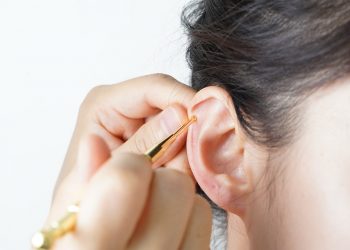Did you know that nearly 15% of the world’s population experiences some form of tinnitus? If you’re one of those people, you’re probably all too familiar with that persistent ringing, buzzing, or hissing sound that seems to play on a never-ending loop. It can be downright maddening. So, what can you do about it? Let’s dive into five soothing techniques that might just help ease the discomfort of tinnitus.
Contents
1. Sound Therapy: Finding Your Peace in Noise
What is Sound Therapy?
Sound therapy is all about using external sounds to mask the internal noise of tinnitus. Think of it as a gentle distraction. Instead of fighting the noise, you invite other sounds into your environment to help you focus on something more pleasant.
Pros and Cons
Pros:
- Easily Accessible: You can use apps, white noise machines, or even nature sounds available on streaming services.
- Customizable: You can adjust the volume and type of sound to what feels best for you.
Cons:
- Not a Cure: It may not work for everyone, and it doesn’t eliminate tinnitus; it merely masks it.
- Potential Over-Reliance: Some might find themselves dependent on sound therapy, which can be a hassle if you can’t access it.
My Experience
I’ve experimented with sound therapy myself. There was a time when I could hardly hear my friends over the constant ringing in my ears. I started using a white noise machine at night, and it made a world of difference. Instead of focusing on the ringing, I drifted off to the soothing sound of rain.
Getting Started
- Choose Your Sound: Experiment with different sounds—white noise, ocean waves, or soft music.
- Set the Volume: Keep it at a comfortable level, not too loud that it becomes distracting.
- Consistency is Key: Try to use it at the same times each day to create a routine.
2. Relaxation Techniques: Stress Less, Hear Less
The Connection Between Stress and Tinnitus
Stress can exacerbate tinnitus. When you’re stressed, your body tends to be on high alert, which can amplify your awareness of the ringing. So, calming those nerves might help dial down the noise.
Techniques to Try
Deep Breathing: Simple but effective. Inhale deeply through your nose, hold for a few seconds, and exhale slowly. Repeat several times.
Progressive Muscle Relaxation: Tense and then relax each muscle group in your body, starting from your toes and working your way up. It’s like a mini workout for your stress!
Pros and Cons
Pros:
- Improves Overall Well-Being: These techniques can help with stress management in general, not just tinnitus.
- No Equipment Needed: You can do these anywhere, anytime.
Cons:
- Takes Practice: It might not yield immediate results; you need to be patient.
- Mindfulness May Be Challenging: For some, focusing on relaxation can feel daunting, especially when tinnitus is loud.
A Personal Take
I’ve found that whenever I take a few moments to breathe deeply, it helps me reset. While it doesn’t eliminate the sound, it does make it feel less overwhelming.
Getting Started
- Find a Quiet Space: Even a few minutes of solitude can make a difference.
- Practice Daily: Make it a habit. Even 5-10 minutes can be beneficial.
- Use Guided Sessions: Consider apps that offer guided relaxation techniques.
3. Warm Compress: A Simple Yet Effective Relief
Why a Warm Compress?
A warm compress can help relax the muscles around your jaw and neck, which might be contributing to your tinnitus. Sometimes, the discomfort is rooted in tension, and a warm compress can help ease that.
Pros and Cons
Pros:
- Easy to Do: All you need is a cloth and some warm water.
- Immediate Relief: Many people report feeling better right away.
Cons:
- Not Long-Term: While it may provide temporary relief, it won’t solve the underlying issue.
- Caution with Temperature: Be careful not to use water that’s too hot—safety first!
My Experience
I stumbled upon this technique after a particularly stressful week. I wrapped a warm, damp cloth around my neck and felt an immediate sense of relaxation. It was a simple fix that surprisingly worked wonders for me.
Getting Started
- Soak a Cloth: Use warm water, not hot, and wring it out.
- Apply to Neck or Jaw: Hold it against areas that feel tense.
- Relax: Take deep breaths while applying it for added benefit.
4. Cognitive Behavioral Therapy (CBT): Change Your Mindset
What is CBT?
Cognitive Behavioral Therapy is a type of talk therapy that helps change negative thought patterns. For those with tinnitus, it can help shift the focus away from the noise and reduce anxiety.
Pros and Cons
Pros:
- Long-Term Benefits: It can provide lasting strategies for managing tinnitus.
- Professional Guidance: Working with a therapist can offer personalized support.
Cons:
- Time Investment: It requires a commitment to attend sessions and practice techniques.
- Cost: Therapy can be expensive, and not everyone has access to it.
Insights from Others
I’ve heard from others who’ve tried CBT that it’s like having a toolkit for life. Instead of feeling overwhelmed by the noise, they learned to view it as just another part of their day.
Getting Started
- Find a Therapist: Look for someone who specializes in tinnitus or anxiety.
- Be Open: Be ready to explore your thoughts and feelings around tinnitus.
- Practice Techniques: Use what you learn in sessions to manage your symptoms.
5. Staying Active: The Power of Movement
How Does Exercise Help?
Exercise releases endorphins, the body’s natural painkillers. It can also help reduce stress and anxiety, which are often linked to tinnitus.
Pros and Cons
Pros:
- Physical and Mental Benefits: Regular exercise improves overall health, not just tinnitus symptoms.
- Social Opportunities: Joining a class or group can help you feel less isolated.
Cons:
- Motivation Can Wane: It can be hard to stay consistent, especially on tough days.
- Not for Everyone: Some people may find certain exercises exacerbate their symptoms.
Personal Reflection
I’ve always found solace in a good walk. Whether it’s a brisk stroll or a leisurely pace, being outside helps me clear my mind and ease the noise.
Getting Started
- Choose an Activity You Enjoy: Whether it’s walking, biking, or yoga, find what makes you happy.
- Start Small: Aim for 20-30 minutes a few times a week and gradually increase.
- Listen to Your Body: Pay attention to how you feel and adjust as needed.
FAQs
Q1: Can tinnitus be cured?
A1: Currently, there’s no definitive cure for tinnitus. However, various techniques can help manage the symptoms.
Q2: Is sound therapy effective for everyone?
A2: Not everyone finds sound therapy effective, but many people do experience relief. It’s worth trying different sounds to see what works for you.
Q3: How long does tinnitus last?
A3: Tinnitus can be temporary or chronic. For some, it may resolve on its own, while others may experience it for years.
Q4: Should I see a doctor about my tinnitus?
A4: Yes! It’s always a good idea to consult a healthcare professional to rule out any underlying conditions.
Conclusion
Navigating life with tinnitus can feel like an uphill battle, but you’re not alone. These five soothing techniques—sound therapy, relaxation methods, warm compresses, cognitive behavioral therapy, and staying active—offer various ways to manage the discomfort. It’s all about finding what resonates with you.
Research is ongoing, and while results are promising, it’s essential to approach tinnitus with a blend of hope and realistic expectations. Remember, what works for one person might not work for another, so don’t hesitate to experiment until you find your personal toolkit for relief.
Disclaimer: This article is for educational purposes only and is not a substitute for professional medical advice. Always consult a qualified healthcare provider before making changes to your health routine.
References
- Davis, A. C., & Rafaie, J. (2000). Epidemiology of Tinnitus. Tinnitus: Theory and Management. https://doi.org/10.1016/B978-0-7020-2500-5.50004-3
- Gans, H. (2019). Cognitive Behavioral Therapy for Tinnitus: A Review of the Evidence. Journal of Audiology & Otology, 23(3), 131-139. https://doi.org/10.7874/jao.2019.0011
- Mayo Clinic. (2022). Tinnitus: Diagnosis and treatment. Retrieved from https://www.mayoclinic.org/diseases-conditions/tinnitus/diagnosis-treatment/drc-20320566
- NIH. (2021). Tinnitus: Overview. Retrieved from https://www.nidcd.nih.gov/health/tinnitus
Get Your FREE Natural Health Guide!
Subscribe now and receive our exclusive ebook packed with natural health tips, practical wellness advice, and easy lifestyle changes — delivered straight to your inbox.















